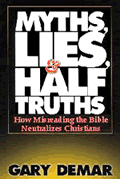Other
Shaw
Articles:
How
America
is Being
Sovietized
WHAT
IS PRIVATE PROPERTY?
PART 3 of 4
By Michael Shaw
October 22, 2006
NewsWithViews.com
The Essence of Private Property
An Owner’s Determination of Use
The
essence of private property — your right to determine its use — can best
be understood by contrasting a system of private property to the alternative.
A system of private property allows you to do with your property what
you please, provided that your use interferes with no one else’s property
rights. That is, you cannot construct a shed for your lawnmower on your
neighbor’s property unless your neighbor grants you the right to do so.
This clear demarcation between yours and mine underlies the  economic
system of laissez-faire capitalism, or free enterprise, in which individuals
own and control the means of production — all the things we need to turn
our ideas into realities. Private property also recognizes that each person
possesses a right to his aesthetic choice regarding his property. The
clothes he wears and the color or style of his home are not subject to
the whim of bureaucracy or the demand of a majority backed by government
force.
economic
system of laissez-faire capitalism, or free enterprise, in which individuals
own and control the means of production — all the things we need to turn
our ideas into realities. Private property also recognizes that each person
possesses a right to his aesthetic choice regarding his property. The
clothes he wears and the color or style of his home are not subject to
the whim of bureaucracy or the demand of a majority backed by government
force.
By contrast, in a socialist system, the government owns the means of production. There is no such thing as private enterprise. If you come up with a way to build a better mousetrap, the government owns the wood and wire — even the bait — that your trap requires. To turn your idea into an actual mousetrap, you must present your idea to a bureaucrat, who may or may not recommend its implementation to those who control the economy. And there your interest in your idea ends — along with your incentive to think of other good ideas. We have witnessed the consequences of such a system in the former Soviet Union, where today its people have limited wealth, a poisoned landscape, and human strife.
Sustainable Development relies upon a mix of socialism and so-called communitarianism. Communitarianism seeks an alternative to socialism and free enterprise by pretending to “split” the difference between them, creating what Benito Mussolini and Tony Blair call the “third way.” Today this idea is often termed “public/private partnerships.” That is, like the free enterprise system, the communitarian approach vests ownership in an individual or association; but like the socialist system, it empowers government to make decisions regarding use. This guiding vision of communitarian or Fabian economics modeled on Italian fascism is now familiar to us through the workings of our local government. [See DVD: "Liberty or Systainable Development"]
Communitarians
seek to create various rights that conflict with an owner’s determination
of use; the owner still owns his property, but the government, as the
arbiter of competing rights, controls what he can do with it. Socialism
and “third way” corporate privatizations or “public/private partnerships”
each form the foundation for a state collective backed by  force
that abolishes private property and treats human beings as biological
resources. Thus, the premise of communitarianism is, like socialism, authoritarian.
Eventually, as has been the case in Santa Cruz, communitarianism leads
to an economic system operated by the favored cronies of government bureaucracy.
Business interests shift their allegiance from the consumer — you and
me — to the agent of force. In reality the economics of communitarianism,
or public/private partnerships, is the most insidious and threatening
form of socialism. This form of socialism possesses short turn economic
muscle that nurtures the political fangs that lead to totalitarianism.
force
that abolishes private property and treats human beings as biological
resources. Thus, the premise of communitarianism is, like socialism, authoritarian.
Eventually, as has been the case in Santa Cruz, communitarianism leads
to an economic system operated by the favored cronies of government bureaucracy.
Business interests shift their allegiance from the consumer — you and
me — to the agent of force. In reality the economics of communitarianism,
or public/private partnerships, is the most insidious and threatening
form of socialism. This form of socialism possesses short turn economic
muscle that nurtures the political fangs that lead to totalitarianism.
Of the political-economic systems, free enterprise protects the essence of private property, the owner’s right to determine use. Property law in a free enterprise system seeks to make your rights compatible with those of every other person. It defines the boundary at which your sovereignty ends, so that your rights do not infringe the equal sovereignty of another. You cannot, for instance, have a property right in the contents of your neighbor’s pantry, which you neither built nor stocked.
Communitarian
policies complicate this straightforward drawing of boundaries by producing
overlapping rights. Suppose you have stocked your own pantry with canned
goods. Suppose, in addition, that your local government passes a law prohibiting
the storage, disposal, or recycling of metal cans on the grounds that
local residents enjoy a right to a tin-free  environment.
How are you to enjoy the contents of the cans in your pantry when you
have no means to deal with the cans themselves? Suddenly, your ownership
of the canned goods has been effectively nullified: you cannot use them.
Indeed, you will have to transport and sell or give them to someone in
another jurisdiction where metal cans are still permitted. Your right
to use the contents of your pantry has run up against the supposed right
of the members of your community to live without tin. The result is waste,
unnecessary conflict, and a crisis of surplus tin that will sooner or
later lead to further government intervention in the management of our
pantries. Responding to the crisis of its own creation, your local government
may make it illegal to purchase canned goods at all.
environment.
How are you to enjoy the contents of the cans in your pantry when you
have no means to deal with the cans themselves? Suddenly, your ownership
of the canned goods has been effectively nullified: you cannot use them.
Indeed, you will have to transport and sell or give them to someone in
another jurisdiction where metal cans are still permitted. Your right
to use the contents of your pantry has run up against the supposed right
of the members of your community to live without tin. The result is waste,
unnecessary conflict, and a crisis of surplus tin that will sooner or
later lead to further government intervention in the management of our
pantries. Responding to the crisis of its own creation, your local government
may make it illegal to purchase canned goods at all.
Communitarian policies similarly complicate the issue of land ownership. Ownership of land includes its surface, the subsurface, and airspace. Communitarian government often seeks to take the use of private land by expropriating control of the airspace through the enactment of scenic-view ordinances. When the owner protests, the government decrees itself the arbiter of competing rights. At that point, bureaucratic labyrinths begin to stretch themselves over the once open terrain of our individual freedoms, complicating and often prohibiting our right to use the property we own.
This process is all too easy to illustrate from the pages of our own newspapers. Consider this familiar scenario: Local government makes laws that create “stakeholder” or neighborhood rights regarding someone’s unimproved land. When the owner of that land announces an intention to build new housing, the government responds by declaring a conflict with the neighborhood’s rights. It must then arbitrate the landowner’s and the neighborhood’s competing claims, rendering use of the property subject to its license or permission.
As this process unfolds, the landowner’s new housing remains unbuilt. Soon a housing shortage develops, causing the cost of housing to rise. Aggrieved citizens then call upon government to provide subsidized, “affordable” housing. Reacting to the clamor it precipitated, government raises taxes and vests inefficient taxpayer-funded “nonprofit” organizations with the authority to build housing on government-owned land. The government, of course, sets the purchase price for these dwellings and decides who is eligible to buy them.
Not surprisingly, those who obtain their homes through the government’s largesse tend to support its policies. As their numbers increase as a percentage of the voting population, an electoral class-battle ensues, pitting them against those who would manage their own lives without government intervention. Such battles splinter communities, breeding ill will, suspicion, and distrust.
As such destructive, unforeseen consequences arise from the creation of “stakeholder” rights; the government reminds those it has injured that it is merely the servant of the popular will. But “the will of the people” seems to include neither the landowner’s will nor his rights. The houses he planned to build remain drawings on a drafter’s table. The land on which he planned to build them has been laden with new taxes and increasing regulation. He can exercise his right to the use of his property — to take the actions that reflect his ownership of himself — only if the government will let him. Therefore, he does what any reasonable person would do in such circumstances: he abandons or postpones his productive activity to acquire sufficient “pull” to win the government’s favor or at least forestall its depredations.
|
Subscribe to the NewsWithViews Daily News Alerts! |
In this downward spiral of centralized authority, at least three precious things are swept away: the consumer’s happiness (yours and mine), the improvement that comes with rising prosperity, and peaceful trade based on mutual consent.
Click here for part -----> 1, 2, 3, 4,
© 2006 Michael Shaw - All Rights Reserved
Sign Up For Free E-Mail Alerts
E-Mails
are used strictly for NWVs alerts, not for sale
Michael Shaw is a founder and director of Freedom 21 Santa Cruz and is a frequent host of the nationally syndicated Freedom 21 Santa Cruz Radio Show. He holds degrees in Political Science and Law and has practiced as an attorney and as a Certified Public Accountant. For 20 years he has implemented Abundance Ecology land management techniques on land he owns on the central coast of California. His success at creating an indigenous plant wonderland is unparalleled. Details are available at www.LibertyGarden.com.
More information on the Nature Conservancy and Sustainable Development (research documents, subject topic articles, radio archives, neighborhood tools to counter Sustainable Development and free subscription to The Report) is available at www.f21sc.net
Web Site: www.freedom21santacruz.net/
E-Mail: MichaelShaw@LibertyGarden.com
By contrast, in a socialist system, the government owns the means of production. There is no such thing as private enterprise. If you come up with a way to build a better mousetrap, the government owns the wood and wire...











